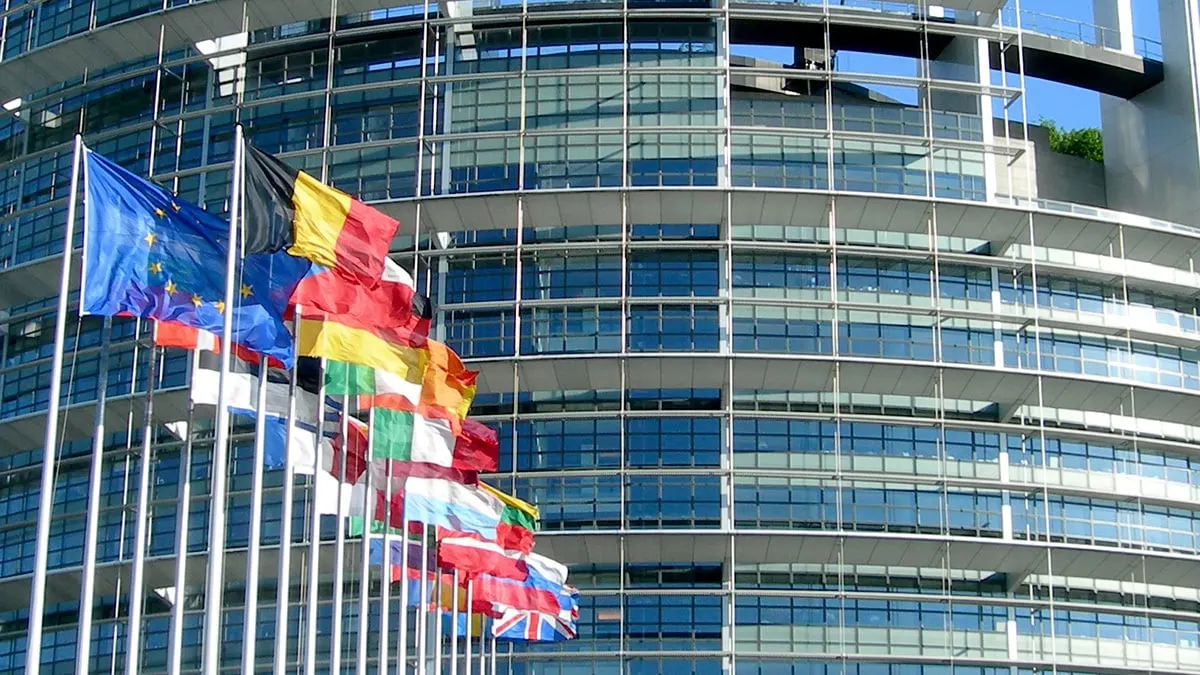The European Parliament on Wednesday overwhelmingly approved a landmark law to regulate artificial intelligence. Billed as the world's most comprehensive AI rules, the Artificial Intelligence Act will take effect later this year.
The AI Act is intended to protect fundamental rights, democracy, the rule of law, and environmental sustainability from high-risk AI, the European Parliament said in its official announcement. while also boosting innovation.
"We finally have the world's first binding law on artificial intelligence to reduce risks, create opportunities, combat discrimination, and bring transparency," Brando Benifei, an Italian lawmaker who co-led the legislative body's work on the legislation, said in the announcement. "Thanks to Parliament, unacceptable AI practices will be banned in Europe, and the rights of workers and citizens will be protected."
The law bans certain AI applications that could threaten citizen rights, such as untargeted scraping of facial images to create facial recognition databases, categorization systems based on sensitive biometric characteristics, social scoring, and emotion recognition in workplaces and schools.
Under the new rules, artificial or manipulated content, known as "deepfakes," must be clearly labeled as such.
AI tools that manipulate human behavior or exploit technical vulnerabilities are also prohibited. Law enforcement's use of biometric identification systems is also largely banned, with narrow exceptions.
High-risk AI systems are defined as those used in critical infrastructure, education, employment, essential services, law enforcement, migration, and democratic processes, and face the most stringent requirements. They must assess and reduce risks, maintain use logs, be transparent and accurate, and ensure human oversight.
The AI Act codifies the right of citizens to submit complaints and receive explanations about decisions based on these systems.
"The EU has delivered—we have linked the concept of artificial intelligence to the fundamental values that form the basis of our societies," Dragos Tudorache, a Romanian lawmaker who also co-led work on the bill, said in the announcement. "However, much work lies ahead that goes beyond the AI Act itself.
“AI will push us to rethink the social contract at the heart of our democracies, our education models, labour markets, and the way we conduct warfare," he continued.
The law also sets transparency requirements for general-purpose AI systems and the models they are based on, including compliance with EU copyright law and publishing detailed summaries of training content. More powerful general-purpose AI models that could pose systemic risks are subject to additional obligations.
However, the use of AI isn't outright discouraged. The law also establishes regulatory sandboxes and real-world testing at the national level to support innovation and make it accessible to small and medium-sized enterprises.
Lawmakers say the AI Act responds directly to citizens' proposals via the Conference on the Future of Europe, particularly those related to enhancing EU competitiveness in strategic sectors. The group also prioritized safety and trust, promoting digital innovation with human oversight, and improving access to information.
While the law has been approved by the EU Parliament, there are a few final steps before formally becoming law, including a final legal check and endorsement by the European Council. It is expected to take effect within a couple of months, although different provisions will take effect over time and in stages.
Businesses are already working to understand and comply with the legislation.
"They want to know how to scale the tech, and get value from AI," Kirsten Rulf, a partner at Boston Consulting Group, told the BBC. "Businesses need and want the legal certainty."
While the US has taken some executive action, and other countries are developing their own AI regulations, the EU's move puts it at the forefront of global efforts to address the dangers associated with AI.
"The adoption of the AI Act marks the beginning of a new AI era and its importance cannot be overstated," Enza Iannopollo, principal analyst at Forrester, told the British broadcaster. "The EU AI Act is the world's first and only set of binding requirements to mitigate AI risks.
“It will make the EU the de facto global standard for trustworthy AI, leaving every other region, including the UK, to 'play catch-up," Iannopollo asserted.
Meanwhile, lawmakers say the AI Act is only the first step.
“The AI act is not the end of the journey but the starting point for new governance built around technology," said Tudorache.

